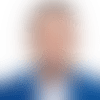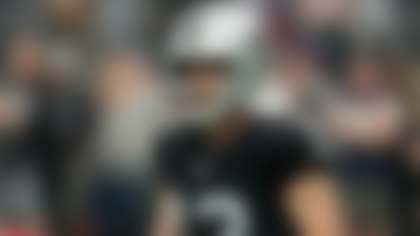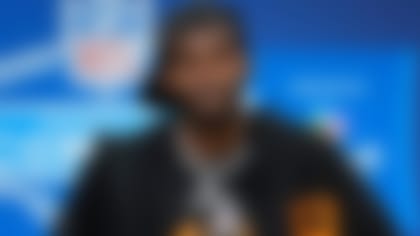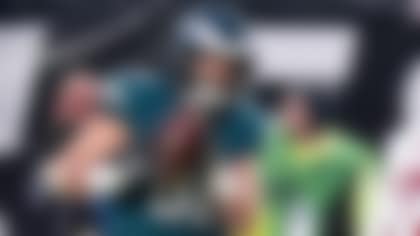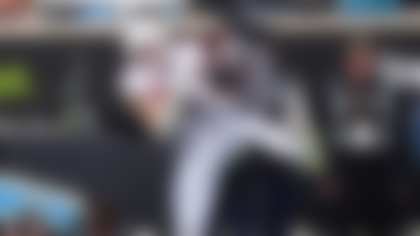Cam Newton's decision to join the Patriots brought an end to one of the stranger sagas of the 2020 offseason.聽
Just four years removed from leading the Carolina Panthers to the Super Bowl and winning the 国产外流网MVP award, Newton sat untouched on the free agent market for over three months, watching other QBs get signed and drafted before finally finding a home as Tom Brady's potential successor. Yes, the injuries that hampered Newton during his final years with the Panthers, combined with teams' inability to work him out during the COVID-19 pandemic, surely played a role in his extended unemployment. But still, it was odd to see him out there for so long after his March release from Carolina.聽
The thing is, Cam wasn't the first quarterback to find himself without a job after both reaching the pinnacle of the sport and winning one of the highest individual awards in pro football. In fact, it happened to me.
In 2001, I won the 国产外流网MVP award and took the St. Louis Rams to the Super Bowl, achieving both feats for the second time in my three seasons as the team's starting QB. From a football standpoint, I had the world by the tail. The sky was the limit, and I believed there would be many more similar moments for me in a Rams uniform. But two seasons later, I was cut.
Like Cam, I'd been slowed by injuries, but I still believed I had a lot to offer. Also like Cam, I was given another chance to show what I had left in the tank. So while we wait to see how Cam's second 国产外流网act turns out in New England, I thought I'd revisit that portion of my playing days, to help those who have never been in this kind of situation better understand some of what Newton has experienced.
Let's rewind to when my trajectory with the Rams first started to nosedive: the four straight losses to kick off the 2002 season, which culminated with my second hand injury in two years. I returned later in the season for two games, only to be sidelined again with yet another injury to my throwing hand. I finished the season with a record of 0-6 as a starter and a TD-to-INT ratio of 3:11.
Of course, it was a disappointing season for me personally. I couldn't quite put my finger on what had gone wrong, but in no way did I believe this had become my new norm. I was as confident as ever that I would get healthy and return to my winning ways. This was a minor slump that all players experience at one point or another, and I would work my way through it. My view of who I was as a player had not changed, and I assumed that view would be shared by others around the NFL, based on what I had accomplished in my previous three seasons.
What did surprise (and scare me a little) was just how quickly people's perspective of you as a player can change. Because in a business like the NFL, perception is reality.
Although my confidence and belief in my skills never wavered after my rough '02, I quickly started to hear the murmurs and rumors that not everyone felt the same way. Many within my own organization and around the league were beginning to wonder if this was the beginning of the end for me. They no longer saw me through an "MVP" lens, but through a lens of skepticism.
This new perception didn't threaten me from a competitive standpoint, because I was always willing to stack my skills up against anyone. The skepticism was nothing new, either; many had been skeptical of my abilities all the way back to my days playing at the University of Northern Iowa. What did surprise (and scare me a little) was just how quickly people's perspective of you as a player can change. Because in a business like the NFL, perception is reality.
Amidst all the rumors, I went back to work. I believed I would show everyone that 2002 was a fluke, and that I would soon be back to my successful ways. Everything appeared to be trending in that direction as I was once again made the starter for the St. Louis Rams for Week 1 of the 2003 season. I personally believed that meant the previous season was behind us, that people were convinced I could play the way I had my first three seasons, and that I would be treated like any other starter around the league.聽聽
It wasn't that way at all. Even though I won the starting job, people continued to watch my every move through that lens of skepticism. What would have simply been chalked up as a bad stretch during my MVP season became evidence that I wasn't the same player I used to be. My performance was no longer evaluated without bias; rather, each person's perception of me colored how they viewed what I did on the field. When I got banged up early in Week 1 and proceeded to fumble the ball six times, most observers saw proof that I was done. For awhile, it looked like they were right; that game ended up being my last start in a Rams uniform, as I was benched for the remainder of the season and cut in June of 2004.
It happens, and I get it. I think it is always important to take a bird's eye view of yourself and try to assess things honestly. I could fully look back at the injuries and lack of production over the last couple of years in St. Louis and understand why people felt I'd never be the player I had been just a few years earlier. Of course, I didn't like that perception, and I didn't agree with it. But I couldn't argue, because it could be justified. So the question then became, How do I change the way people see me?
It is important to note that this perception was not limited to those within the Rams organization, but widely held throughout the NFL. If I wanted to play again, I had to convince someone that those last two years were not indicative of who I would be moving forward. I had to find a team out there without a QB who would be willing to give me a shot -- because they had no other real options -- to prove to everyone I could once again play at a high level.聽
Cam had a similar challenge this offseason, coming off an injury-ravaged campaign in which he looked like a shell of his former self. Given another chance by Bill Belichick, will he show his worth between the lines once more?
The good news is, I am a walking example that perception is NOT always reality. I was given two more opportunities -- with the New York Giants and Arizona Cardinals -- to prove that the overriding perception of me as a player was not accurate. I was able to return to form, playing at a Pro Bowl level and reaching the Super Bowl once more.
Knowing Cam's track record and the competitor that lies within him, I would not be surprised if he once again rose to the top of the league.
